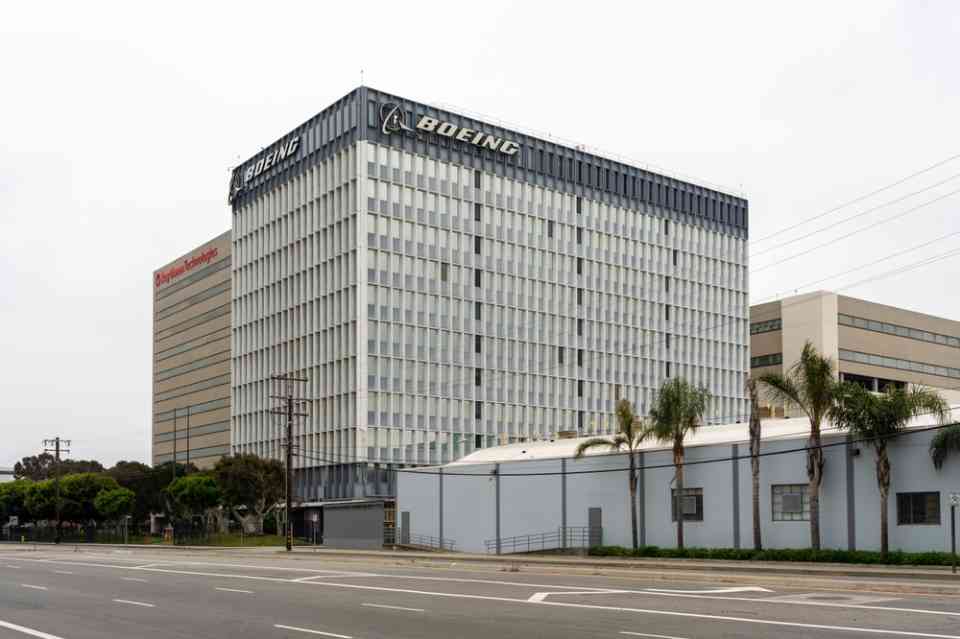Boeing Posts Massive Losses as New CEO Aims for Long-Term Overhaul

Boeing reported significant financial losses for the quarter on Wednesday, with new CEO Kelly Ortberg acknowledging that restoring Boeing’s former reputation would take time. Ortberg, who assumed leadership in August, a month before a strike involving 33,000 members of the International Association of Machinists, stated that the company would focus on changing its corporate culture, stabilizing its operations, and improving program execution going forward.
Boeing’s net loss for the quarter surged to $6.2 billion, up from $1.6 billion in the same period last year. The commercial airplane division, which has faced ongoing difficulties, accounted for $4 billion of the operating losses, although the strike only affected the final two weeks of the three-month period. In addition, the company reported a $2.4 billion operating loss in its space and defense division, which was unaffected by the strike.
The losses were not solely attributable to the strike. Boeing also took a $3 billion pre-tax charge due to further delays in its next-generation commercial jet, the 777X. Issues encountered during test flights have pushed back the aircraft’s first deliveries to 2026, alongside plans to phase out the 767 freighter jets. Furthermore, a $2 billion pre-tax charge was taken for issues related to several defense and space programs, including its Starliner spacecraft, which had to return from the International Space Station without crew members after developing problems. The spacecraft had stranded two NASA astronauts, who will now return on a SpaceX mission. While Boeing did not disclose the exact amount related to the Starliner charge, it is estimated to be in the hundreds of millions of dollars.
Boeing had previously warned investors about much of this bad news and cautioned that more challenges lie ahead. The company is expecting negative cash flow throughout 2025, indicating it will spend more on operations than it earns in revenue, even assuming the strike concludes soon.
Ortberg informed investors that resolving the strike was the top priority and that Boeing had been working intensively to find a resolution that benefits both the company and its employees. However, even if the strike ends quickly, Ortberg warned it would take time to restore operations to pre-strike levels. He refrained from providing a timeline for when Boeing would resume its previous production rate of 38 737 Max jets per month, stating that the restart process would be gradual and that doing it correctly was more important than rushing.
Following Ortberg’s comments, Boeing’s shares, which had already fallen 39% earlier in the year, dropped by more than 3%. The strike, which began on September 13, had brought much of Boeing’s commercial airplane production to a standstill. Financial analysts, such as Standard & Poor’s, are on the verge of downgrading Boeing’s credit rating to junk bond status, estimating the strike is costing Boeing an additional $1 billion per month on top of its existing financial losses.
Meanwhile, members of the International Association of Machinists (IAM) were voting on Wednesday on whether to accept Boeing’s latest contract offer, with the possibility of returning to work as early as Friday if the offer is approved. JPMorgan Chase aerospace analyst Seth Seifman estimated that the proposed contract, which includes a 35% wage increase over four years and an immediate 12% raise, could increase Boeing’s labor costs by more than $1 billion. However, Boeing’s planned workforce reduction of around 10%—or 17,000 employees—could offset these costs, according to Seifman.
Although the proposed contract offers wage increases and enhanced retirement contributions, it does not restore the traditional pension plan that Boeing had eliminated a decade ago, a decision that had caused significant discontent among union members. Ratification of the contract is uncertain, especially after union members overwhelmingly rejected a previous tentative agreement recommended by union leadership, which led to the start of the strike.
This marks one of Boeing’s worst quarters amid nearly five years of financial and operational difficulties. The company has not reported a loss of this magnitude since the end of 2020 when the pandemic severely impacted its airline customers and delayed plans for the 777X jet. Since the second fatal crash of its 737 Max in early 2019, Boeing has accumulated core operating losses totaling $39.3 billion. These crashes led to the plane being grounded for 20 months, and Boeing has recorded losses in nearly every quarter since.
To cover its losses, Boeing has taken on significant debt, which rose to $53 billion by the end of September, compared to $47 billion at the start of the year and $10.7 billion in March 2019. Boeing has announced plans to raise an additional $25 billion through borrowing and the sale of stock and debt. The company has also been financially strained by the pandemic, which drastically reduced airline demand and caused widespread losses across the industry.
Moreover, the grounding of the 737 Max allowed airlines to cancel their orders without penalty, resulting in the loss of hundreds of orders for Boeing. In January, a door plug blew off a 737 Max operated by Alaska Airlines shortly after takeoff, leading to federal investigations into the plane’s safety. One investigation revealed that the aircraft had left a Boeing factory without four critical bolts needed to secure the door plug.
The Federal Aviation Administration (FAA) has since increased its oversight of Boeing, which could further delay the company’s ability to ramp up 737 Max production and return to profitability.
Despite these setbacks, Boeing remains a crucial part of the U.S. economy as the country’s largest exporter, contributing an estimated $79 billion annually and supporting 1.6 million jobs across 10,000 suppliers in all 50 states. Some of these suppliers have already begun laying off workers due to the strike. Given its position as part of a duopoly with European competitor Airbus, Boeing’s survival seems secure, as airlines are unlikely to cancel orders and switch to Airbus, which has a backlog of orders and would take four to five years to fulfill new requests.
Have you read?
Highest-Paid Athletes in the World.
Largest stock exchanges in the world by market capitalization.
Countries with the largest air forces in the world.
Best European destinations to travel to as a student.
Largest Cities in Africa.
Bring the best of the CEOWORLD magazine's global journalism to audiences in the United States and around the world. - Add CEOWORLD magazine to your Google News feed.
Follow CEOWORLD magazine headlines on: Google News, LinkedIn, Twitter, and Facebook.
Copyright 2025 The CEOWORLD magazine. All rights reserved. This material (and any extract from it) must not be copied, redistributed or placed on any website, without CEOWORLD magazine' prior written consent. For media queries, please contact: info@ceoworld.biz








